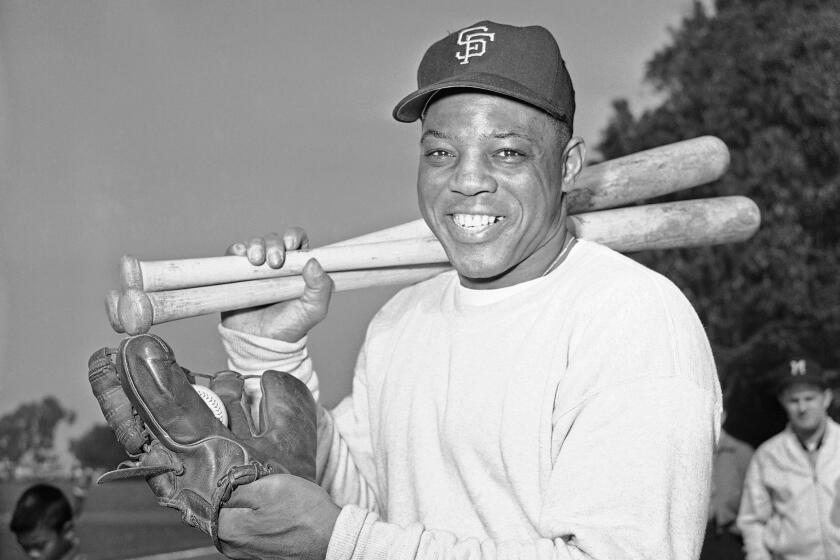Cheaters never prosper? Not so
Since the dawn of human history, human beings have been known to cheat, even in America, where the fast-talking confidence man found his way into the darkly satirical fiction of Herman Melville and Mark Twain.
Still, at that time, in the late 19th century, as David Callahan reminds us in his lucid and thoughtful book “The Cheating Culture,” Americans were an exceptionally open, honest and trusting society: “People meet on a simple and natural footing with more frankness and ease than is possible in countries where every one is either looking up or looking down,” observed the British Lord Bryce, who visited the country and wrote “The American Commonwealth.” “It gives a sense of solidarity to the whole nation....”
But as Callahan demonstrates, there’s disturbing evidence that we are well on the road to becoming quite a different kind of society: a corrupt kleptocracy with an ever-widening gap between the haves and have-nots that will look a lot more like a giant banana republic. Callahan gives us chapter and verse: case histories that show just how endemic cheating has become, from the boardrooms of our largest corporations to the classrooms of our high schools, from lawyers who bill hours they never worked to mechanics who charge for repairing car parts that didn’t need fixing.
Yet most people, he believes, don’t really want to be dishonest. Unlike the classic con man, most of these cheaters are people who, under different circumstances, would probably not have cheated:
“Picture yourself an auto mechanic who works for a national chain of repair shops.... A new set of marching orders is handed down ... from the chain’s corporate headquarters. You’re informed that all mechanics and managers will henceforth have their base pay sharply reduced and will have to make up the difference each month based upon how much work they perform. Once you ... do the math, you realize that headquarters is expecting everyone to work harder for the same amount of money. Management also makes it clear that anyone who doesn’t meet the quotas may be fired....
“Your job becomes very different.... Whenever a customer brings in a car you can proceed in one of two ways: The right thing to do is to take a look and say, honestly, exactly what the car needs. This is your instinct, and what you’d prefer to do.... The problem is, doing the right thing has suddenly gotten a lot harder. You’ll suffer a pay cut and risk your job if you don’t meet your quota -- and there’s a nice carrot dangling in front of you if you do rack up a lot of extra work.”
Examining specific cases of cheating in various fields, from accounting to academe, Callahan finds that the rewards for cheating are high, the odds of getting caught are low and, even if you are caught, the punishments are relatively light, as in the cases of Jayson Blair and Stephen Glass, the plagiarizing journalists who cashed in on their own scandals by writing books.
Informative as the case histories are, the most valuable aspect of Callahan’s book is his on-target analysis of how this noxious and, in the true sense, un-American corruption came to infect our culture.
Ever since the late 1970s, as he documents, the gap between the rich and poor has been widening drastically: “The top 1 percent of American households saw their income increase by an amazing 157 percent,” while the middle fifth increased by only 10% and the bottom fifth declined.
The income gap, always an ominous sign for the future of any democracy, has resulted in increased political clout for the wealthy minority, discouragement and apathy among the majority. Labor unions have lost power, governmental regulations have been weakened and regulatory agencies gutted. In the dog-eat-dog world of capitalism run amok, it’s become a game of winner take all. Job security has vanished, “performance” and “productivity” (augmented by dishonest means) are what count and trust is waning.
How did we get this way? Callahan astutely points out how the “do your own thing” ethos of “ ‘60s rebels” paved the way “for the laissez-faire revolution of the ‘80s and ‘90s.” While conservatives were lambasting the evils of pregnant teenagers and welfare moms and liberals were worrying about Star Wars and Robert Bork, the truly serious moral problem of unmitigated greed was virtually ignored. Callahan also notes a stubborn streak of social Darwinism in American culture that leads people to admire “winners,” no matter whom they may have crushed to get to the top. And many of today’s “winners,” from cheating athletes to crooked corporate executives, have not been paying the price for their misdeeds.
Callahan’s suggestions for dealing with the problem are rather anticlimactic: They’re sensible as far as they go, but they don’t go far enough. The reason to read this book is for his eye-opening portrait of the way we live now, his sobering analysis of how we got here and his prescient warning of where we may be headed if we don’t get back our bearings.
